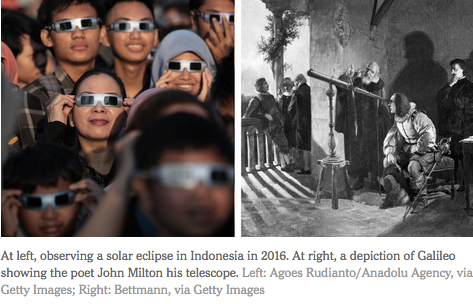These kinds of forecasts are painful to consider. By contrast, something like a solar eclipse is just fun. But as you watch it on Monday, spare a moment to think about the role of science in society.
When the moon throws Corvallis, Ore., into near-darkness at 10:16 a.m. local time, or eclipses the sun over Kansas City, Mo., at 1:08 p.m., or Nashville at 1:27 p.m., think about the long scientific journey that allowed us to know precisely when it would happen.
Think about Galileo standing in the dock of the Inquisition, forced to recant his belief that the Earth moves around the sun. Legend has it that he whispered under his breath: “And yet it moves.” Think about the centuries of patient effort that followed to work out the precise motions of the solar system, now understood so thoroughly that we can use them to predict eclipses centuries in advance.
If you respect and honor the scientists who did this work, then spare another moment to think about the scientists whose work is under attack today, and why.
Read full article




